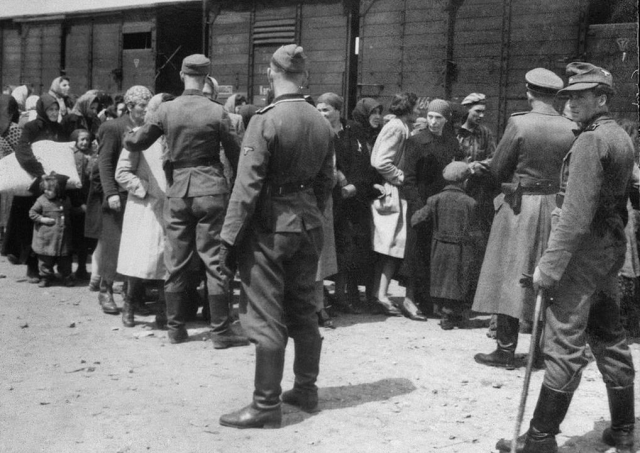On August 14th, 1944, John J. McCloy, the US Assistant Secretary of War, responded to a letter from Leon Kubowitzki, the leader of the Rescue Department of the World Jewish Congress. In his letter, McCloy clarified the US War Department's position regarding the bombing of Nazi Death Camps and related infrastructure. The response highlighted that while the US had the capability and intelligence to strike certain Nazi death camps, the War Department did not prioritize such actions in terms of military resources.
McCloy articulated in his letter, “Given the circumstances, such a mission would necessitate redirecting significant air support, which is currently instrumental in other pivotal operations. Furthermore, the effectiveness of such an action remains uncertain, making it challenging to justify the allocation of our resources. There's a substantial sentiment suggesting that such an attempt might result in even more brutal reprisals by the Germans. While the War Department deeply respects the humanitarian spirit behind the proposed mission, due to the aforementioned reasons, it hasn’t been deemed feasible or appropriate at this juncture."
After Wall St.s "The Chairman," John J. McCloy, prevented the bombing of Auschwitz and permitted highest level Nazis to evade Nuremberg and come to US & work in CIA and US Colleges and Universities [Operation Paperclip]
— Honey, CIA Shrunk The Political Spectrum (1968) (@DoItForMaMa) January 4, 2020
he ran the Warren Commission to find out who killed JFK.
During the period when large numbers of Hungarian Jews were being transported to Auschwitz in late spring and summer of 1944, over thirty representatives from various Jewish organizations and media outlets appealed to the US and its allies. They urged them to target the rail systems and bridges facilitating these deportations or to directly strike the gas chambers. Nahum Goldmann, the co-chairman of the World Jewish Congress, personally met with officials from the US, Britain, and the Soviet Union, advocating for these bombing campaigns.
FDR’s Undersecretary of State William Phillips was an open antisemite and pro-Nazi. Not to mention Joe Kennedy. FDR & the Asst Secretary of War John J. McCloy refused to bomb the tracks to Auschwitz. The idea that anyone in the US government cared about the Holocaust is laughable
— mati en couleur 🟣 ∞ 🌟 (@matiencouleur) April 3, 2022
It's a poignant fact that, despite possessing intelligence on the death camps (some sources indicate as early as early 1944), the official policy of the White House was to avoid diverting military resources to "rescue the victims of enemy oppression."
There isn’t evidence that FDR himself was consulted about bombing Auschwitz, but War Dept official John J. McCloy said FDR had ruled it out. @deborahlipstadt says it was a tragic mistake. @rerbelding says there was no right answer.
— Sewell Chan (@sewellchan) September 22, 2022
By today's understanding, US forces were in a position to target Auschwitz by May 1944. However, it wasn't until January 27, 1945, that Soviet forces marched into Auschwitz, freeing the 7,000 prisoners who remained. When comparing this number to those who potentially could have been rescued, the disparity is heart-wrenching. While various estimates exist, a common consensus indicates that around 1.3 million individuals were deported to Auschwitz from 1940-1945, and at least 1.1 million of them perished there. If the US military had taken action to bomb just Auschwitz, it is conceivable that at least 100,000 lives could have been preserved.


